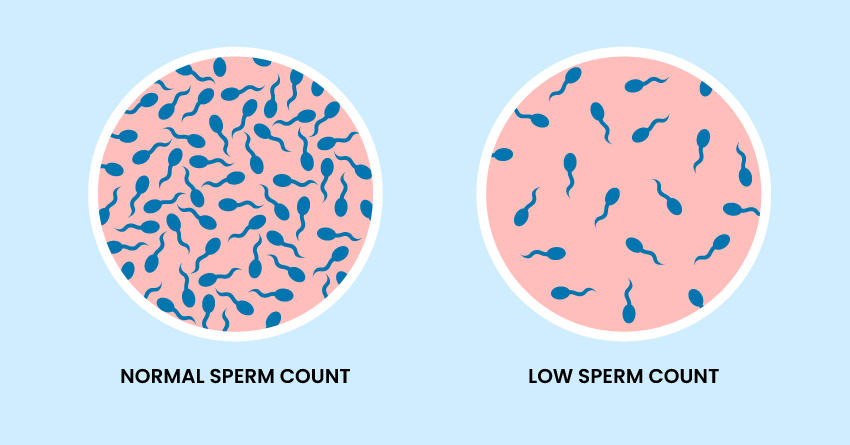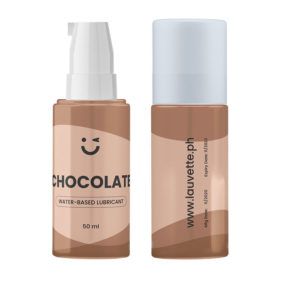
Disclaimer: This article explores the causes and potential effects of watery semen. Please note that this guide is based on various online materials from medical experts and is not a substitute for direct consultation with a doctor. The remedies provided are recommended for those who have just noticed changes in their semen consistency. However, if watery semen is a recurring issue, please consult your healthcare provider for a proper assessment.
Semen typically has a gel-like consistency. However, there may be instances where it becomes thinner and more watery. If you’ve noticed this change, you might wonder whether it’s normal or if there’s an underlying issue. Don’t stress—we’re here to break down the possible causes of watery semen, how it might impact your fertility, and steps you can take to help restore its usual thick consistency.
What Does Normal Semen Look Like?

Before discussing the causes and effects of watery semen, let’s quickly review what normal semen should look and feel like.
Semen—also known as ejaculate, cum, or jizz—is a bodily fluid released when someone designated male at birth (DMAB) orgasms after sexual stimulation. That said, there are rare cases where someone may orgasm without ejaculating.
This fluid consists of two key components: sperm and seminal fluid. Sperm are the tadpole-shaped cells responsible for fertilization, while the seminal fluid acts as their transport and nourishment system, giving them the best chance to swim toward and fertilize an egg. Though seminal fluid is primarily water, it also contains various proteins, vitamins, and minerals essential for supporting sperm.
Various resources describe normal semen as having the following characteristics. These traits can vary slightly from person to person, but significant deviations might indicate a need for further attention:
- Color: Whitish-gray
- Texture: Jelly-like, similar to egg whites
- Smell: Musky and chlorine-like, often compared to bleach
- Consistency Changes: Thins out after about 30 minutes
- Taste: Neutral—not overly sweet or salty.
On the other hand, watery semen is typically runny and clearer in appearance compared to normal semen.
When checking the consistency of your semen, make sure to check once you’ve ejaculated. Semen naturally thins out a few minutes after being exposed to air, and if it doesn’t thin out, this could indicate another issue known as “frozen semen.” This condition may also pose fertility challenges, as the semen lacks the necessary glide to help sperm move and reach the egg effectively.
Can Watery Semen Affect Fertility?

One of the primary concerns when noticing irregularities in semen is its potential impact on fertility. Watery semen can sometimes indicate a low sperm count, which may affect your ability to conceive.
We’ll fully discuss this in the next section, but if you’re trying to have a baby and notice that your semen is constantly watery, it’s best to check with the medical professional immediately and get the necessary medications and procedures.
Potential Causes
There are several potential reasons for having a watery semen, including the following:
1You might have a low sperm count.

Low sperm count, or oligospermia, occurs when an individual produces fewer than 15 million sperm per milliliter of semen. A normal sperm count typically ranges from 15 million to over 200 million sperm per milliliter. While low sperm count often doesn’t present any noticeable symptoms, some individuals may experience a reduced sex drive or less body hair.
This condition can have several causes. Hormonal imbalances, genetic conditions such as Klinefelter syndrome (where a male has an extra X chromosome), and undescended testicles (a condition where the testicles don’t properly descend into the scrotum) are some of those internal factors. Infections can also play a role by either interfering with sperm production or blocking the pathways for sperm.
External factors like certain medications (used for arthritis, depression, or high blood pressure) and surgeries (such as vasectomy, inguinal hernia repair, surgeries involving the scrotum or testicles, prostate surgeries, or major abdominal surgeries) can also impact sperm count. In some cases, cancers or tumors may contribute to the issue.
You can also experience low sperm count due to prolonged exposure to industrial chemicals like pesticides, heavy metals such as lead, radiation from X-rays, and excessive heat around the scrotum area. Lifestyle factors like drug use, chronic stress, smoking, and obesity can also contribute to changes in sperm count.
-
₱150.00
-
Original price was: ₱795.00.₱556.50Current price is: ₱556.50.
-
Original price was: ₱795.00.₱556.50Current price is: ₱556.50.
2You might be ejaculating a little bit too much.

Did you know that too much ejaculation can affect the consistency of your semen? When your body is constantly pumping out semen, it may not have enough time to produce the same quality each time. For example, a 2016 study found that male individuals who followed a 14-day ejaculation schedule with 3-5 days of abstinence experienced a decrease in semen volume during the times they were ejaculating daily.
There’s no official number or measurement to determine what’s too much ejaculation, but if you’re masturbating or having sex frequently and notice your semen getting watery, along with symptoms like irritation on your penis skin, painful erections, soreness, and general fatigue, take a break. After a few days, check to see if your semen returns to its usual consistency.
3You might have varicocele.

Varicocele is a condition where the veins in the scrotum, which holds your testes, become enlarged. While many people with varicocele don’t experience symptoms, some may notice dull testicular pain, swelling in the scrotum or testicles, a small lump on the affected side, or changes in the look and consistency of their semen.
Though not fatal, varicocele can negatively impact fertility. So, if you notice any of these symptoms along with watery semen, it’s important to consult a doctor as soon as possible.
-
₱150.00
-
₱150.00
-
₱150.00
-
₱150.00
4It might be due to retrograde ejaculation.

Did you know that “dry orgasms” can occur in male individuals?
Medically known as retrograde ejaculation, this condition happens when semen enters the bladder instead of being released through the penis. This occurs when the bladder sphincter, which normally closes to allow semen to exit the body while keeping urine in, doesn’t function properly. The bladder neck ends up staying open, causing semen to enter the bladder instead of being expelled through the penis.
Aside from little or no semen coming out during orgasm, the person might also experience watery semen and cloudy urine.
This condition often affects individuals who’ve had surgery in the urethra, prostate, or rectum, as well as those with diabetes, multiple sclerosis, or issues within their urethra. While they can still experience orgasm and maintain normal erections, they might have difficulty in conceiving since there’s less semen being released during the deed.
If you suspect that your watery semen and reduced discharge are due to retrograde ejaculation, it’s best to seek consultation, especially if you’re planning to have a baby. Once you’ve undergone the necessary tests and received a diagnosis, your doctor may prescribe medications to help the sphincter function properly. You might also get recommended Kegel exercises, which can help improve urinary control and overall pelvic floor health.
5There’s not enough zinc in your system.

In some cases, watery semen may be due to a zinc deficiency, as zinc plays a key role in sperm production. A 2018 study highlighted that insufficient zinc can negatively impact semen quality, but it also emphasized that too much zinc can lead to the same results.
Since the body can’t produce zinc, you can only get it through food or supplements. According to WebMD, some zinc-rich foods include:
- Seafood like oysters, lobster, and crab
- Meat such as beef and pork
- Legumes like beans, nuts, and chickpeas
- Oats
- Tofu
The recommended daily intake for zinc is 8mg for non-pregnant women, 11mg for men, 11 mg for pregnant people, and 12mg for lactating individuals. However, the upper limit is 40mg—consuming more than this can lead to dizziness, nausea, loss of appetite, and headaches. And as mentioned in the study earlier, too much zinc can also be bad for your sperm.
Other Factors to Check
Aside from the consistency of your semen, there are also some indicators in your semen that something may be amiss:
1Color

Normal semen has a greyish-white color, sometimes with a subtle yellow tinge, especially if you haven’t ejaculated for a while or have eaten foods rich in turmeric, asparagus, or chives.
However, if your semen is fully yellow, yellowish-green, red, brown, pink, or black, it could signal an underlying issue such as sexually transmitted infections (STIs) or urinary tract problems. If your semen appears watery and has an unusual color, consult your doctor as soon as possible for a proper diagnosis and treatment.
2Smell

As mentioned, semen typically has a chlorine or bleach-like smell, though the intensity can vary. However, if the scent suddenly changes to something more unusual, like a rotten egg or fishy odor, and doesn’t return to its usual smell, it could be a sign of an underlying condition.
3Semen Volume

If you notice that your semen volume isn’t as much as it used to be, or you’ve had low-volume ejaculations since you started, it could be a sign of conditions like retrograde ejaculation (which we discussed earlier), ejaculatory duct obstruction, or hypogonadism.
If you plan to have children, it’s important to get checked by a healthcare provider. Early diagnosis can help manage the underlying cause and improve semen volume, increasing your chances of conceiving.
-
₱2,995.00
-
₱8,250.00
-
₱2,695.00
-
Original price was: ₱3,395.00.₱3,055.50Current price is: ₱3,055.50.
4Semen Liquefaction

Once semen is released, it typically liquefies or thins out after 30 minutes. This is normal and ideal because if the semen remains thick, it could prevent sperm from reaching the egg. If you’re on the other end of the scenario, in which your semen doesn’t thin out after an hour, that could create some fertility issues in the long run, so see your doctor immediately.
Sperm Remedies
While waiting to see a doctor, there are some home remedies and lifestyle changes you can try to help maintain healthy semen consistency:
1Eat foods rich in zinc, selenium, Vitamin C, Vitamin E, and other essential nutrients.

As mentioned above, one reason watery semen occurs is zinc deficiency. That said, ensure the recommended intake of zinc and other vitamins and minerals that are good for sperm production.
2Lead a healthier lifestyle.

Having nutritious meals and staying active can help support overall health, including sperm quality, even if the impact isn’t immediate. The key is to avoid being too restrictive with your diet or workout routine—stress from overdoing it can backfire. Small, consistent steps are often more sustainable and can make a big difference over time!
-
₱1,250.00
-
₱2,695.00
-
₱4,495.00
-
₱9,000.00
3Temporarily reduce all pleasure sessions.

If you suspect that excessive ejaculation has led to watery semen, consider taking a break for a few weeks. Use this time to channel your energy into workouts, personal projects, or other activities that keep you engaged. If you find yourself feeling mentally overwhelmed by intense impulses, speaking with a therapist can help you manage and navigate these feelings.
When Should You Consult a Doctor?

While we recommend seeing a doctor if you notice frequent watery semen, it’s even more urgent to make an appointment if you experience signs like irritation in your penile area, lumps or rashes on the scrotum, painful urination, changes in semen color or smell, or difficulty orgasming. These could indicate that the issue is more than just a nutrient deficiency or excessive masturbation.
Takeaway
Having watery semen doesn’t necessarily point to infertility or life-threatening conditions, but it can lead to serious effects if left untreated, especially if accompanied by other symptoms.
That’s why, as we wrap up this guide, we want to remind you to consult your healthcare provider if you notice any unusual changes in your semen or other areas of your body. Don’t feel ashamed to talk to a doctor about your ejaculation concerns—these specialists have studied this area extensively. They are ready to help you with your situation.


















